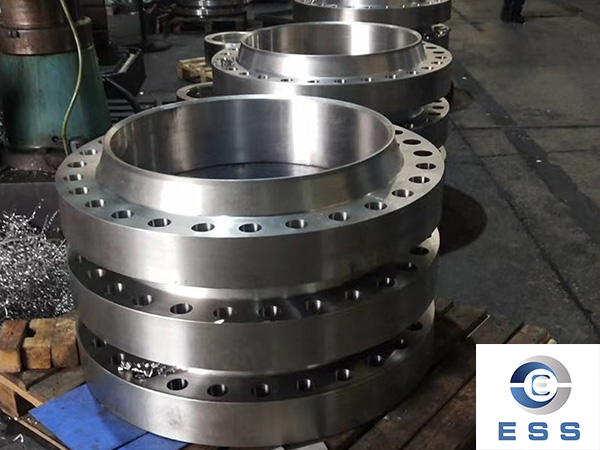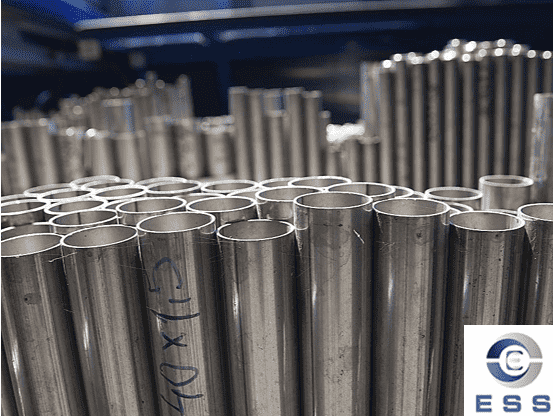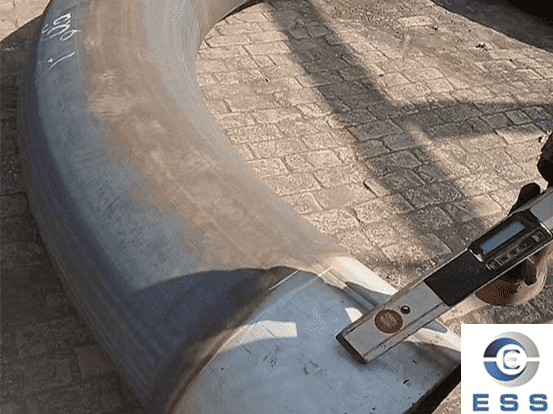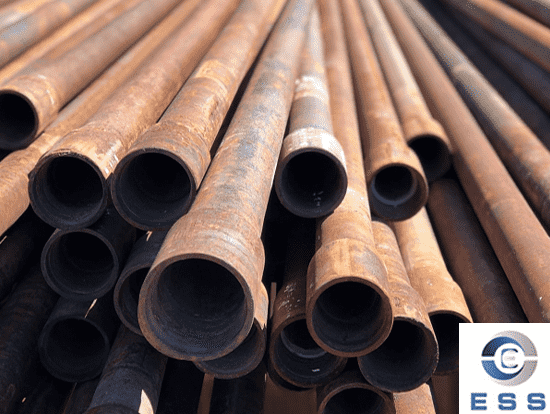The pressure marks specified in this standard are divided into PN marks and Class marks.
PN marked with 12 pressure classes
They are: PN2.5; PN6; PN10; PN16; PN25; PN40; PN63; PN100; PN160; PN250; PN320; PN400
Class mark has 6 pressure levels
They are: Class 150; Class 300; Class 600; Class 900; Class 1500; Class 2500
The other meaning of the national standard
flange is: the flange produced according to the size and tolerance range required by the national standard is different from the flange piece not produced according to the standard size, also called the second standard flange (some people call it non-standard flange) is not correct), usually some unscrupulous merchants will reduce the two dimensions of flange plate thickness and outer diameter to achieve the purpose of saving materials, and use scrap steel or scrap steel to process flanges, usually this kind of steel is chemical composition and mechanical Scraps that do not meet the performance standards, and even flanges are produced by private steelmaking in black steel factories. The steelmaking technology used in this kind of private steelmaking is outdated and cannot guarantee mechanical properties and welding performance. It may not be able to be welded to steel pipes when used, or The steel itself has cracks, pores, etc., and it will leak after welding, so try to use national standard flanges when purchasing flanges. If the funds are limited and you choose the second standard flange, you must carefully observe and measure the flange size to avoid being fooled.
Processing professional equipment
The processing and manufacturing of large-diameter flanges requires professional equipment to achieve twice the result with half the effort. Professional equipment includes CNC disc milling machines, large-head lathes, etc.

Common malfunctions
In the continuous production of modern industry, flanges are affected by factors such as medium corrosion, erosion, temperature, pressure, vibration, etc., and leakage problems will inevitably occur. Due to the error of the processing size of the sealing surface, the aging of the sealing element and improper installation and fastening, it is easy to cause leakage of the flange. If the flange leakage problem cannot be dealt with in time, the leakage will expand rapidly under the scouring of the medium, resulting in the loss of materials, the destruction of the production environment, and the shutdown of the enterprise, resulting in huge economic losses. Leakage of toxic, harmful, flammable and explosive media may also cause major accidents such as personnel poisoning, fire and explosion.
The traditional solution to flange leakage is to replace sealing elements and apply sealant, or replace flanges and pipes, but this method has great limitations, and some leakage is limited by the requirements of working environment safety, so it cannot be solved on site . At present, polymer composite materials can be used for on-site plugging, among which Fushilan system is relatively mature. It is an ideal method, especially in flammable and explosive occasions, and it shows its unique advantages. The construction process of polymer composite material technology is simple, safe, and low in cost. It can solve most of the flange leakage problems for enterprises, eliminate potential safety hazards, and save more maintenance costs for enterprises.
Scope of application
Due to the good comprehensive performance of the flange, it is widely used in basic projects such as chemical industry, construction, water supply, drainage, petroleum, light and heavy industry, refrigeration, sanitation, plumbing, fire protection, electric power, aerospace, shipbuilding, etc.
Read more :Production process of flange













 Eastern Steel Manufacturing Co.,Ltd not only improve product production and sales services, but also provide additional value-added services. As long as you need, we can complete your specific needs together.
Eastern Steel Manufacturing Co.,Ltd not only improve product production and sales services, but also provide additional value-added services. As long as you need, we can complete your specific needs together.










